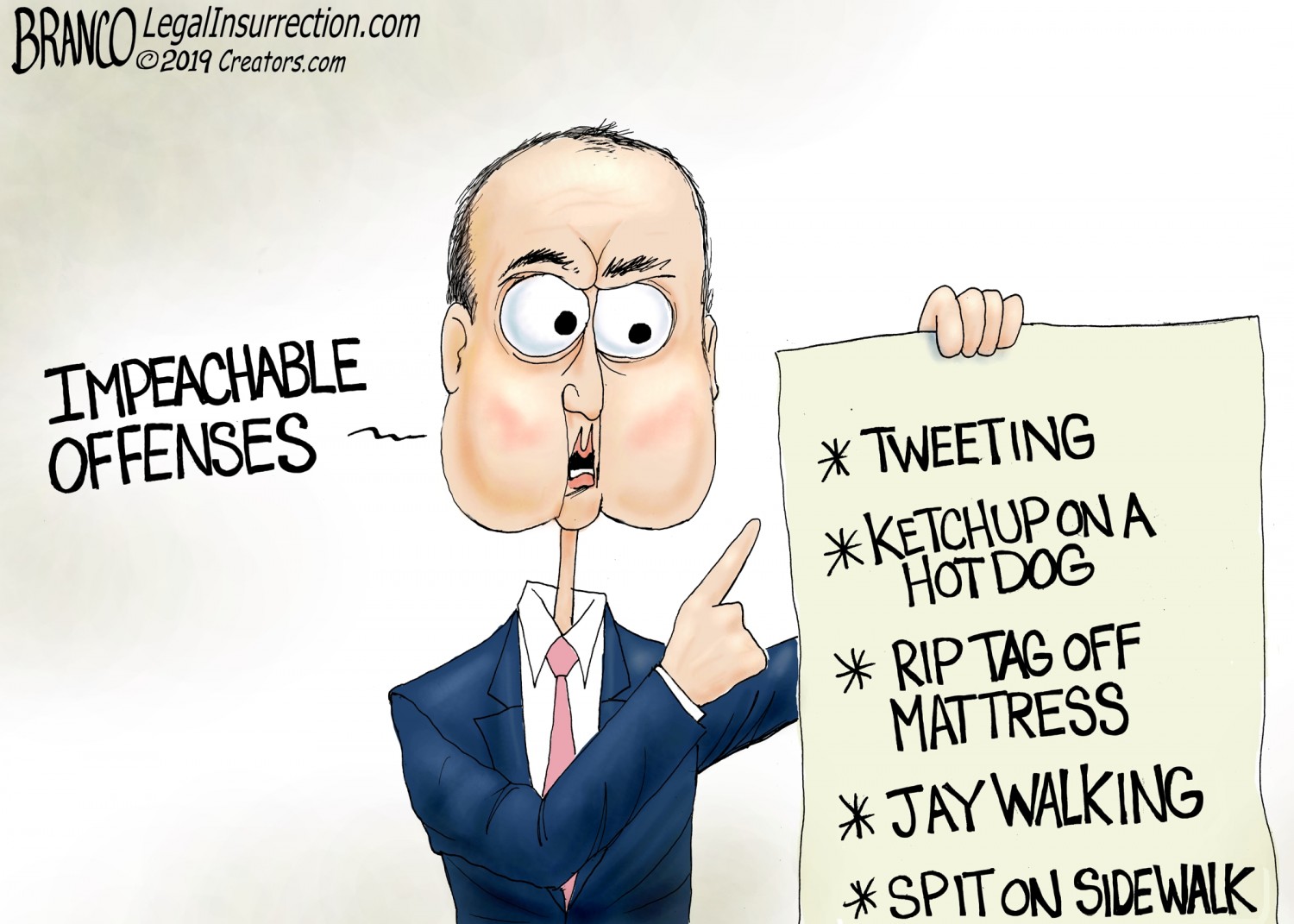Cheap Seats 2019Impeachment 101 - 11/20 
By Rich Trzupek
We find ourselves immersed in the fourth impeachment inquiry of a United States President since the founding of the republic. Looking back at the previous three, one was wholly political, one was partially political and partially justified and one was wholly justified.
The first impeachment inquiry, which resulted in a trial before the Senate, was directed at Andrew Johnson, Lincoln’s successor and 17th President of the United States. Johnson was alleged to have committed the high crime or misdemeanor of not playing ball with Congress, which was then in the control of radical Republicans, with regard to post Civil War reconstruction policy.
When Johnson succeeded Lincoln the radicals believed that one of their own was taking the oath. Lincoln had famously said “let ‘em up easy” when discussing restoration of the rebellious former Confederate states into the Union. The Radicals wanted vengeance not moderate reconciliation, so when Booth cut Lincoln’s life short at Ford’s Theater most of the radicals believed their wishes had come true. Rather than having to battle Lincoln, whose popularity among the electorate was skyrocketing with the end of the war imminent, over reconstruction policy they would be able to deal with their old buddy Andy who ate just as much fire as they.
Johnson, for whatever reason, had a change of heart after taking over. He became a proponent of Lincoln’s moderate reconstruction policy, a perceived betrayal that enraged the radicals. Impeachment followed soon thereafter.
He was acquitted by a margin of one vote. Every Democrat and 10 brave Republicans voted against the articles of impeachment. One of the latter, Senator Lyman Trumbull of Illinois explained his decision in terms that resonate through the centuries:
“Once set the example of impeaching a President for what, when the excitement of the hour shall have subsided, will be regarded as insufficient causes, as several of those now alleged against the President were decided to be by the House of Representatives only a few months since, and no future President will be safe who happens to differ with a majority of the House and two thirds of the Senate on any measure deemed by them important, particularly if of a political character. Blinded by partisan zeal, with such an example before them, they will not scruple to remove out of the way any obstacle to the accomplishment of their purposes, and what then becomes of the checks and balances of the Constitution, so carefully devised and so vital to its perpetuity? They are all gone.”
Trumball understood that impeachment should not – could not – be used as a partisan tool, but only as a means to remove a public official who had committed demonstrable, unmistakable crimes.
The next target of an impeachment inquiry, Richard Nixon, appeared then and now to have met that standard. Whether by omission or commission Nixon appeared to have knowledge of criminal activity committed in his name that substantially undermined the governance of the United States. He resigned before that accusation could be proven, but few in either party doubted that it could.
Bill Clinton committed perjury. There is no question about that. However, Clinton committed perjury when answering questions about his sex life. Perjury is a serious offense. Lying about an affair, in 20th century America was not. My opinion at the time and now is that the House was correct in referring the matter to the Senate, because presidents should not commit perjury, and the Senate was correct in giving Bubba a pass because lying about one’s sex life doesn’t rise to the level of “high crimes or misdemeanors”.
Which brings us to President Trump. Where does this impeachment inquiry fall on the historical scale? To me, this is Andy Johnson redux. Trump is an outsider who annoys almost all of the opposition party and media and a great many in his own party as well. This disturbs a lot of people, except those millions of Americans who voted for the man precisely because they believed he would do just that.
This inquiry, doomed to fail, is not about investigating the supposed wrong-doings of a president of the United States, it’s about undermining the authority of a duly-elected chief executive whose very existence is incomprehensible to the terminally befuddled Adam Schiff and his colleagues.
Email:richtrzupek@gmail.com
.
.
.
|